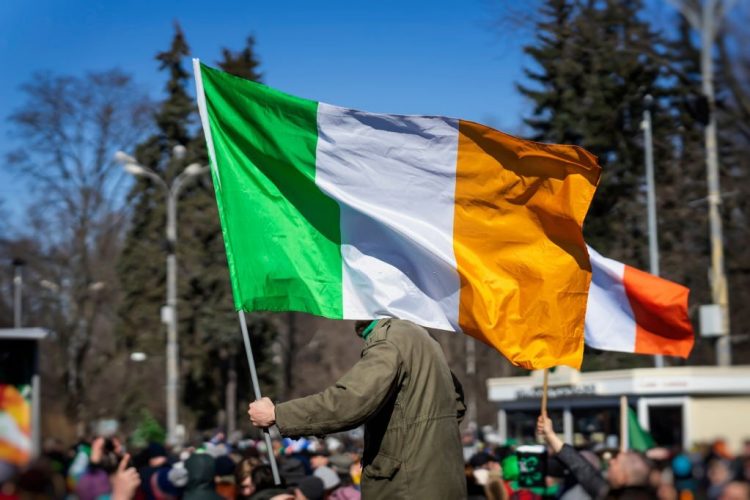Catholics are increasing in Northern Ireland, leaving Protestants within few numbers; now, the United Ireland has come way closer than ever. Now let’s see if it is inevitable or not. Will people of both the Irelands support it or not?
What is the Unification of Ireland?
United Ireland, also called Irish reunification, is the proposition that all of Ireland should be a single sovereign state. At present, the island is divided politically; the sovereign Republic of Ireland has jurisdiction over the majority of Ireland, while Northern Ireland, which lies entirely within (but does not constitute the entirety of) the Irish province of Ulster, is part of the United Kingdom. Achieving a united Ireland is a central tenet of Irish nationalism, particularly of mainstream and dissident Irish republican political and paramilitary organizations. Unionists support Northern Ireland remaining part of the United Kingdom and oppose Irish unification. Ireland has been partitioned since May 1921, when the implementation of the Government of Ireland Act 1920 created the state of Northern Ireland within the United Kingdom. The Anglo-Irish Treaty, which led to the establishment in December 1922 of a dominion called the Irish Free State, recognized partition, but this was opposed by anti-Treaty republicans.
When the anti-Treaty Fianna Fáil party came to power in the 1930s, it adopted a new constitution that claimed sovereignty over the entire island. The Irish Republican Army (IRA) had a united Ireland as its goal during the conflict with British security forces and loyalist paramilitaries from the 1960s to the 1990s, known as The Troubles. The Good Friday Agreement signed in 1998, which ended the conflict, acknowledged the legitimacy of the desire for a united Ireland while declaring that we could achieve it only with the consent of a majority of the people of Northern Ireland.
In 2016, Sinn Féin called for a referendum on a united Ireland in the wake of the decision by the United Kingdom to leave the European Union (EU). The decision had increased the perceived likelihood of a united Ireland to avoid the possible requirement for a hard border between Northern Ireland and the Republic of Ireland. However, the imposition of a hard border did not eventuate. Taoiseach Enda Kenny said that in the event of reunification, Northern Ireland should be allowed to rejoin the EU, just as East Germany was permitted to join the EU’s predecessor institutions by reuniting with the rest of Germany after the fall of the Berlin Wall.
In demographic terms, the six counties of Northern Ireland, taken as a whole, contain a plurality of Ulster Protestants who almost all favour continued union with Great Britain. However, four of the six counties have Irish Catholic majorities and majorities voting for Irish nationalist parties. The religious denominations of the citizens of Northern Ireland are only a generalized guide to likely political preferences, as there are both Protestant nationalists and Catholic unionists. Surveys identify a significant number of Catholics who favour the continuation of the union without identifying themselves as Unionists or British.
Why is there a need for a United Ireland?
Britain ignored democracy during the Home Rule crisis and later the crisis posed by the republican forces and Sinn Fein during and after World War 1. Ireland was, and still is, predominantly Catholic/Nationalist. Democratically, an independent Ireland should have been granted in 1921, but only 26 counties were made independent so that the unionist majority in the north would be safeguarded. What would you do if you woke in the morning and looked out your window to see a strange flag and people from a distant land laying claim to your garden? That’s what happened here in this country. Bigotry was bred and buttered at home and work, and the awful truth is there are still bigots within the framework of an ever closer united Ireland that would, if allowed, bring us back to the days when the bully boys ruled. I wish our forefathers could be here to witness that which will eventually come about.
Sinn Fein has the most electoral support in the north. it’s been constantly growing since they decided to enter politics. The biggest party in the south will enter northern politics soon; both support a United Ireland; I’d call a complete consensus on the island of Ireland being united.
In 2016, there’ll be a renewed desire for a united Ireland everywhere to commemorate the centenary of the founding of our state, and I will also point to the ever-changing demographics; Catholics consistently having much larger families than Protestants means in time, Catholics will be a majority in Northern Ireland, along with peace being much more established and concreted over the next 10-20 years, it is only a matter of time.
Is Irish unification inevitable?
The 2021 Northern Ireland census results have been released, showing that 42.3% of the population identify as Catholic and 37.3% as Protestant or other Christian. The census included a supplementary question asking respondents – whether they were religious or not – in which religion they were brought up. When adding these answers, the percentages of Catholics and Protestants rise to 45.7% and 43.5%, respectively. It is not surprising that nationalists have hailed these most recent census results as signalling that Irish reunification is edging closer. The Good Friday Agreement includes a provision for a border poll to be held should a majority appear to favour Irish unity. With Brexit already causing some to question the value of Northern Ireland’s place in the union, some have suggested that demographic change might be a factor in triggering a poll. Opinion polling, however, has consistently shown that a significant minority of Catholics do not necessarily favour Irish reunification.
Further, the proportion of the population describing themselves as neither Protestant nor Catholic has been growing. In 1991, only 3.7% said stated that they had no religion. This has now increased to 17.4%.
It was precisely for this reason that in 2001, faced with the need for data for equality monitoring, statisticians added a new question about religious background. We see an increasing proportion of people answering “none” in response to this supplementary question as well- up to 9.3% in 2021 from 5.6% in 2011. This is partly why it appears increasingly uncertain whether the recorded Catholic share of the population will eventually grow to exceed 50%, which some commentators previously anticipated as a border poll trigger. While those describing themselves as Catholic or from a Catholic background now outnumber those from Protestant backgrounds, between 2011 and 2021, their share of the population only grew from 45.1% to 45.7%. In the medium term at least, Northern Ireland appears set to have three communities, none of which constitute a majority: Catholics, Protestants, and “neither” or “others”.
Conclusion
Catholics outnumber Protestants in Northern Ireland for the first time, a demographic milestone for a state designed a century ago to have a permanent Protestant majority. Results from the 2021 census released on Thursday showed that 45.7% of inhabitants are Catholic or from a Catholic background, compared with 43.48% from Protestant or other Christian locations. The 2011 census figures were 45% Catholic and 48% Protestant. Neither bloc is a majority. The demographic tilt was expected but will still deliver a psychological hit to unionists, who for decades relied on a supposedly impregnable Protestant majority to safeguard Northern Ireland’s position in the UK.





























